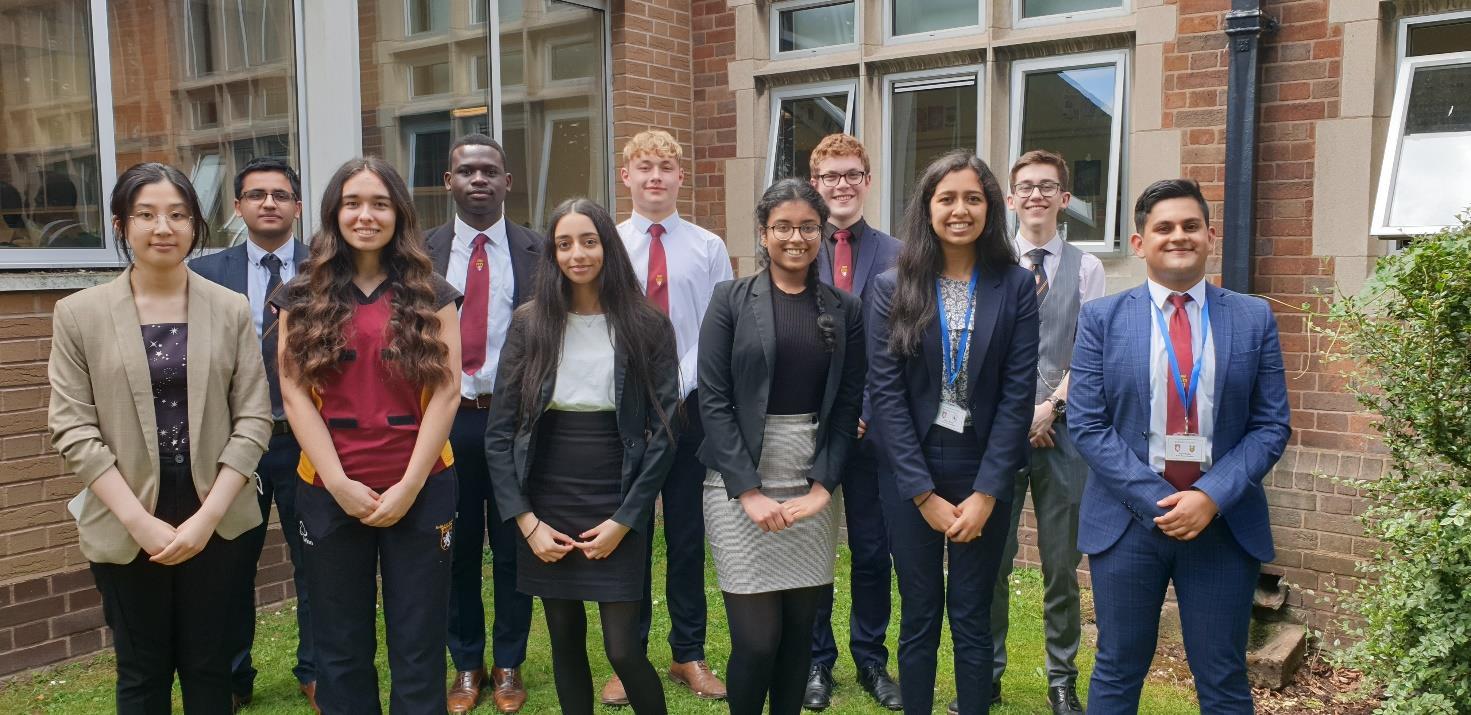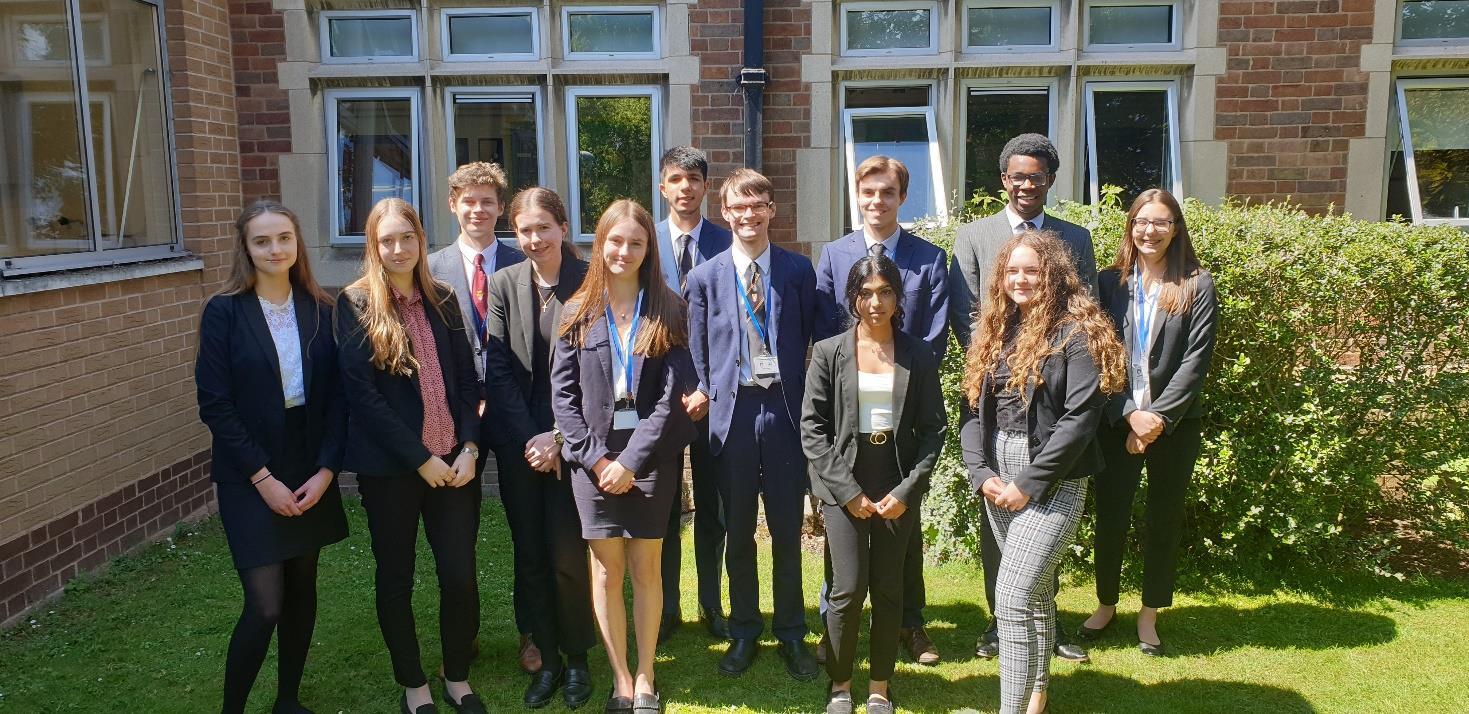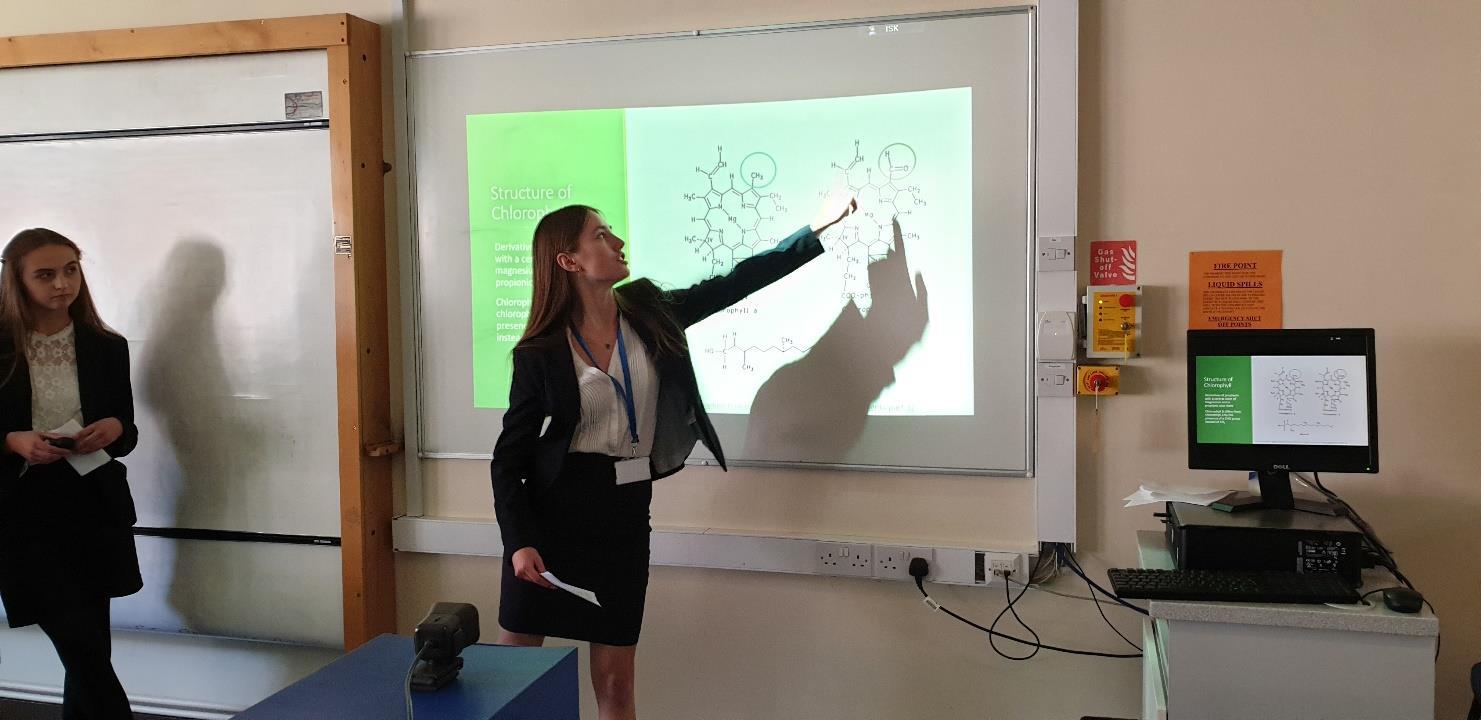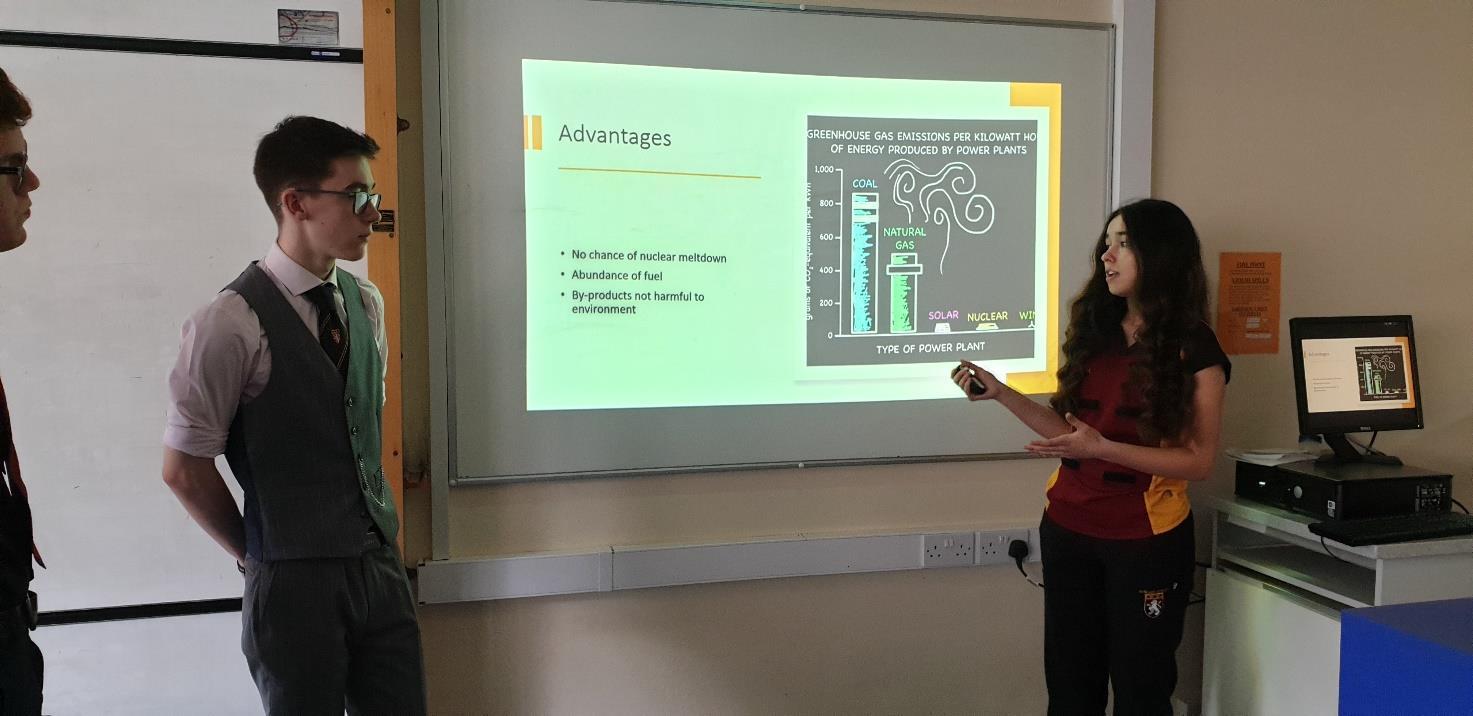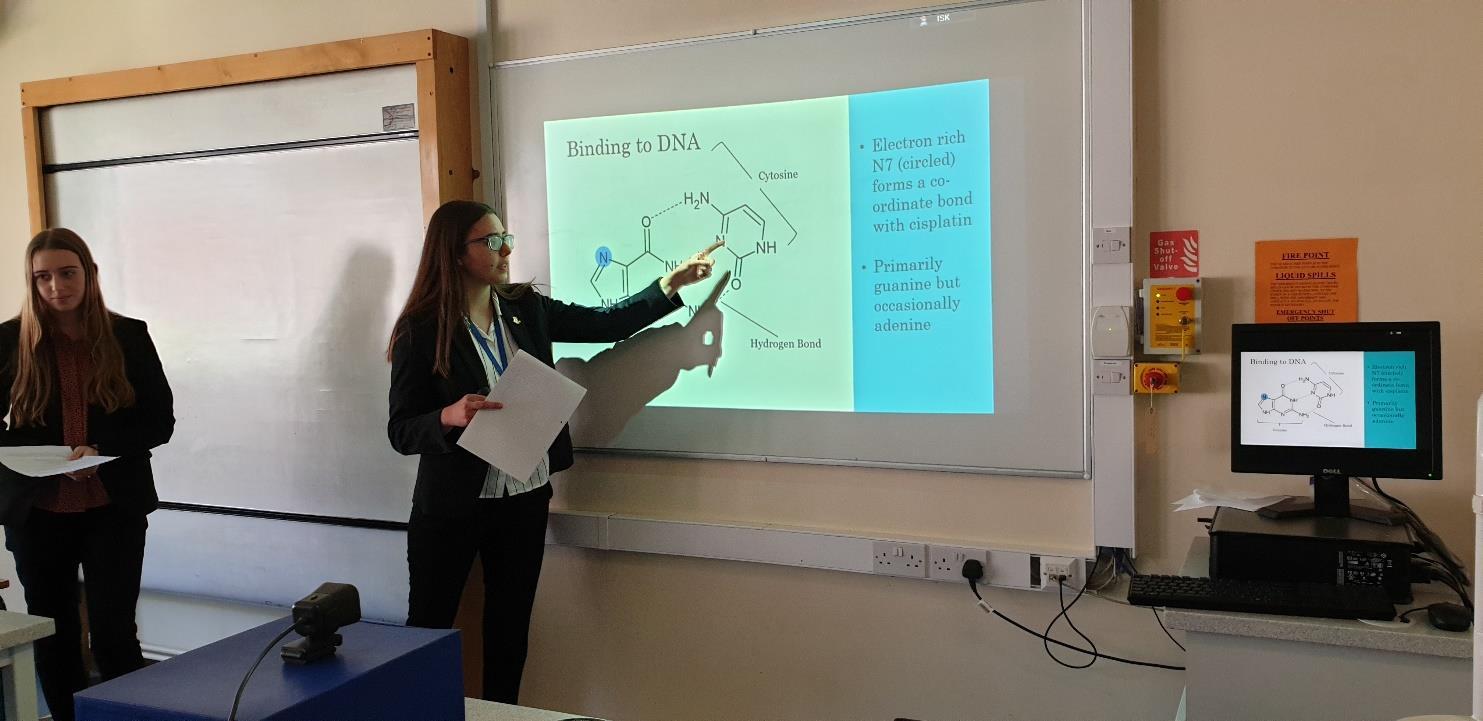
2 minute read
LITERATURE BASED PROJECTS
A number of Lower Sixth students took part in a literature-based project. A total of 23 students were involved and there were 9 groups. Professor Ward, Head of Chemistry at the University of Warwick delivered a presentation to the Lower Sixth students outlining the task and giving them advice on how to produce a highquality written article. Each group selected a question from a list provided by the Professor and spent a long time researching their question. They then picked out the key information from their sources and put it together in their own words in the form of a written article. The standard of the articles produced was very high. The questions that the students selected were: • Why is grass green? • Why is life carbon-based and not siliconbased? • Why is ozone loss more severe in Antarctica and how is it affected by the seasons? • Why do hydrangea flowers change colour depending on the soil? • Why is heroin so addictive? • How is cis-platin used to treat cancers? • Why don’t we use nuclear fusion power for a large proportion of our energy yet? The groups also delivered an oral presentation to the Professor to summarise their written article and answer the question that they chose. The students delivered high quality presentations and answered questions which were asked by the Professor.
The students thoroughly enjoyed their experience and I hope it has built their academic muscles and acquired them with some useful skills for university.
The articles on ‘why is grass green?’ by Eleanor, Madeleine and Lucia, and ‘why don’t we use nuclear fusion power for a large proportion of our energy yet?’ by Ewan and Adrian scored the highest marks. Many thanks to Dr Casey for his support during the four weeks. We would also like to say a big thank you to Professor Ward for giving up his time and providing this excellent opportunity to the students.
Some of the articles are attached but the references have been removed to save space. All sources were referenced in the original articles, and they are available on request.
Professor M Ward
